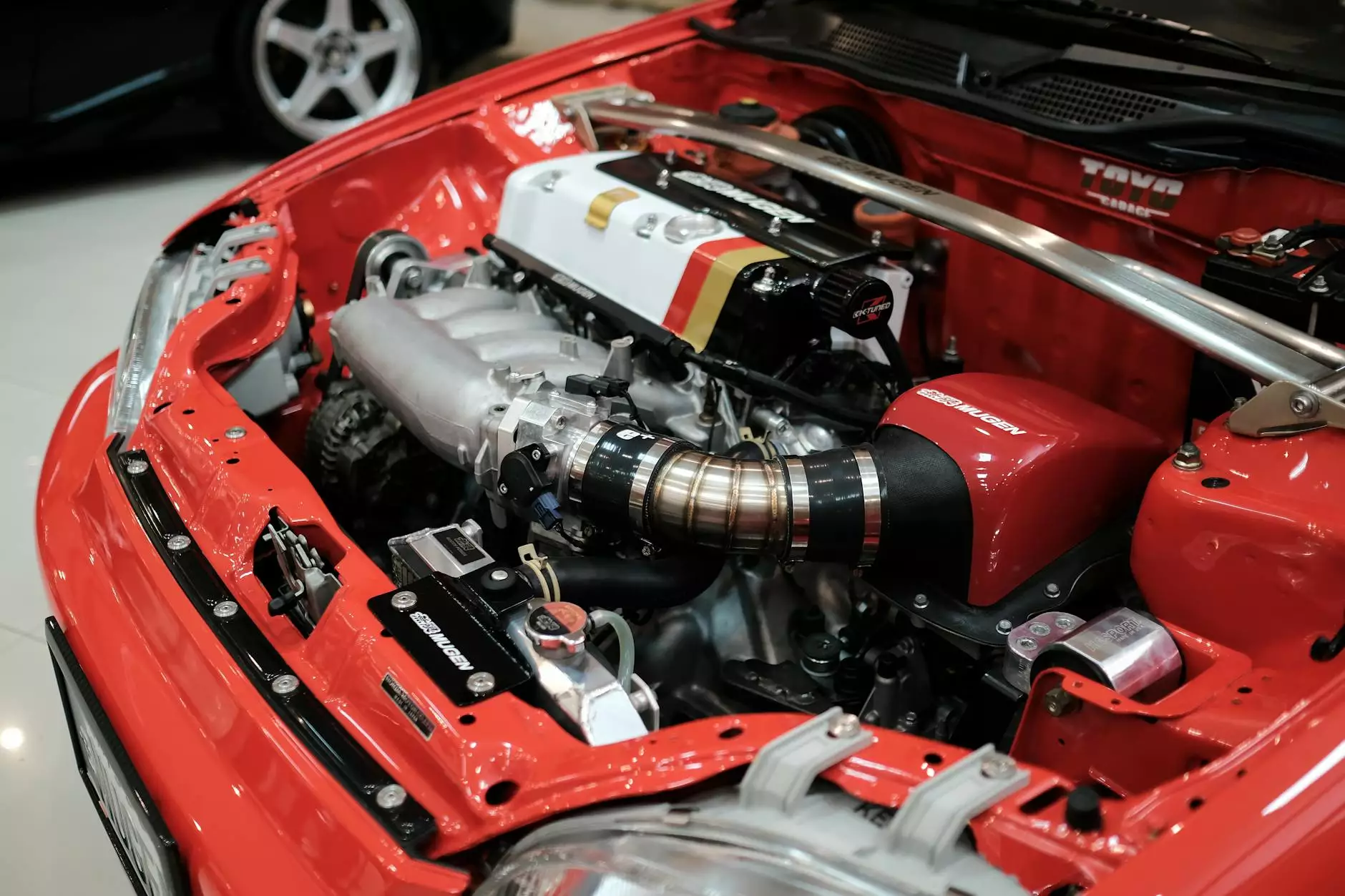Understanding the Role of the Crankshaft on Engine Performance

The crankshaft on engine plays a crucial role in the overall functionality and efficiency of vehicles, particularly those powered by diesel engines. This vital component serves as the backbone of the engine, converting linear motion from the pistons into rotational motion, which ultimately propels the vehicle forward. In this extensive article, we will delve into the intricacies of the crankshaft, its types, maintenance, and the importance it holds in the realm of diesel engines.
The Functionality of the Crankshaft
The crankshaft is responsible for transforming the linear motion of the pistons into rotational motion. This process is fundamental in making the engine operate smoothly and efficiently. Here are the primary functions of the crankshaft:
- Energy Conversion: The crankshaft converts the up and down motion of the pistons into rotational energy.
- Balance: It helps to balance the engine by distributing the mass of the components equally, which reduces vibrations.
- Connecting Rod Movement: The crankshaft is connected to the connecting rods, which link to the pistons and facilitate their movement.
- Power Transmission: It transmits power to the transmission, providing the necessary force to turn the wheels of the vehicle.
Types of Crankshafts
There are several types of crankshafts available, each designed for specific engines and performance demands. Understanding these types is essential for selecting the right crankshaft for your diesel engine:
1. Cast Iron Crankshafts
Most common in diesel engines, cast iron crankshafts are known for their durability and strength. They are capable of withstanding high levels of stress and are usually a cost-effective option for standard diesel engines.
2. Forged Steel Crankshafts
Forged steel crankshafts are utilized in high-performance engines due to their superior strength and lightweight properties. They are produced through a process that aligns the grain structure of the metal, resulting in a strong and resilient component.
3. Billet Crankshafts
Designed for racing and high-performance applications, billet crankshafts are machined from a single piece of steel. They offer unparalleled strength and are often custom-made to meet specific performance requirements.
The Importance of the Crankshaft in Diesel Engines
In the context of diesel engines, the crankshaft is particularly significant due to the nature of diesel fuel combustion. The following points highlight its importance:
- High Torque Output: Diesel engines produce significant torque, and the crankshaft must efficiently handle and convert this power to drive the vehicle.
- Temperature Resistance: Crankshafts in diesel engines are built to endure high temperatures, ensuring long-term reliability.
- Stress Management: The crankshaft must be able to manage the stress generated from combustion effectively, which is higher in diesel engines compared to gasoline engines.
Maintenance Tips for Crankshafts
To prolong the lifespan of the crankshaft and ensure optimal performance of the diesel engine, regular maintenance is essential. Here are some practical maintenance tips:
1. Regular Oil Changes
Lubrication is key in preventing wear and tear on the crankshaft. Regular oil changes will ensure that the crankshaft and other engine components are well lubricated, reducing friction and heat buildup.
2. Monitoring Engine Temperature
Keeping an eye on the engine temperature can help avoid overheating, which can cause severe damage to the crankshaft. Ensure that the cooling system is functioning properly and that there are no leaks in the coolant.
3. Checking for Engine Vibration
Excessive vibrations during engine operation can be a sign of a faulty crankshaft or imbalanced engine components. Addressing these issues promptly can prevent further damage.
4. Professional Inspections
Regular inspections by a qualified technician can identify potential crankshaft issues before they escalate. This proactive approach is essential for maintaining the health of the engine.
Common Issues Related to Crankshafts
While crankshafts are robust components, they can encounter issues that hinder engine performance. Here are some common problems to watch for:
1. Crankshaft Seals Leaking
Leaking seals can lead to oil loss, which affects lubrication and can cause serious engine damage. It is important to replace any defective seals immediately.
2. Crankshaft Bearing Wear
Worn bearings can lead to excessive play, resulting in crankshaft misalignment. Regular inspections can help detect bearing wear early.
3. Crankshaft Warp
Overheating can cause the crankshaft to warp, leading to issues in timing and alignment. Preventative maintenance is key in avoiding this problem.
The Future of Crankshafts in Diesel Engines
As technology advances, the design and manufacturing of crankshafts are also evolving. Innovations such as lighter materials, improved production techniques, and better coatings are helping enhance performance and longevity. The demand for more efficient diesel engines is driving these advancements, ensuring that the crankshaft remains a pivotal component in engine design.
Conclusion
In conclusion, the crankshaft on engine is a vital part that significantly impacts the performance and efficiency of diesel engines. Understanding its functions, types, and maintenance is crucial for both enthusiasts and professionals in the diesel engine parts industry. By ensuring proper care and staying informed about advancements in crankshaft technology, users can maximize the lifespan and performance of their engines.
Client Diesel: Your Trusted Source for Diesel Engine Parts
At client-diesel.com, we specialize in high-quality diesel engine parts, including crankshafts. Whether you're a spare parts supplier or an individual looking to enhance engine performance, our expert team is here to assist you in finding the right components tailored to your needs. Explore our extensive inventory today and keep your engine running at peak performance!









